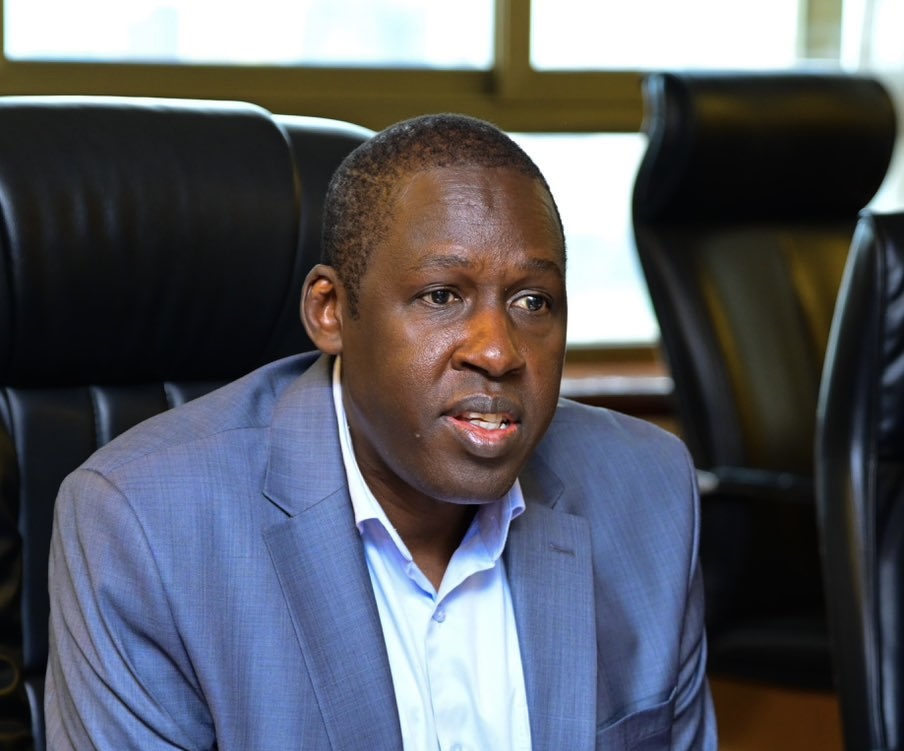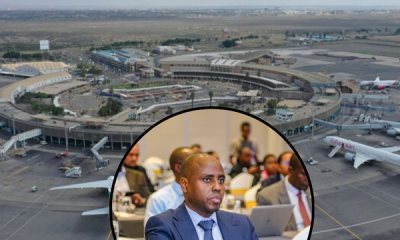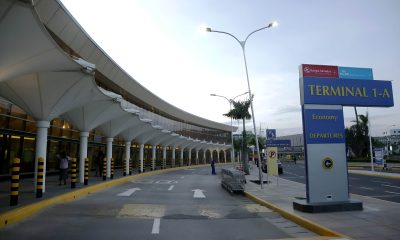News
Airport Workers Issue Strike Ultimatum as Leaders Claim Government Eyes Revival of Scrapped Adani-JKIA Deal
“When you hear Raila Odinga talking about Adani, he is testing the waters. He is being used to test the waters. And for a fact, Raila had a share in the Adani deal,” Ndiema declared, responding to Odinga’s Monday criticism of protesters who opposed the original agreement.

Kenya’s aviation sector faces imminent disruption as the Kenya Aviation Workers Union (KAWU) has issued a seven-day strike notice to the Kenya Airports Authority (KAA), threatening to paralyze operations at the country’s busiest airport from October 1.
The industrial action comes amid explosive claims by union leaders that the government is testing public opinion for a potential revival of the controversial Adani Group deal to lease Jomo Kenyatta International Airport (JKIA), using former Prime Minister Raila Odinga as a conduit.
KAWU Secretary General Moss Ndiema has accused Odinga of serving as a front for interests seeking to resurrect the multi-billion-dollar airport modernization project that President William Ruto terminated in November last year following corruption allegations against the Indian conglomerate.
“When you hear Raila Odinga talking about Adani, he is testing the waters. He is being used to test the waters. And for a fact, Raila had a share in the Adani deal,” Ndiema declared, responding to Odinga’s Monday criticism of protesters who opposed the original agreement.
The ODM leader had defended the scrapped deal, arguing that Kenya “squandered a massive opportunity to modernise its main airport” and claiming Adani came to invest rather than exploit the country’s resources. However, Ndiema dismissed these assertions, alleging that Adani intended to use JKIA as collateral to secure loans rather than inject fresh capital.
“They were not coming here to invest even a cent. They wanted to use JKIA as collateral to borrow money. If that is the case, the KAA can use that collateral to borrow money directly. Do we need a middleman?” Ndiema questioned.
The union’s strike threat extends beyond the Adani controversy, encompassing six critical demands that paint a picture of systemic dysfunction at KAA. Chief among these is what Ndiema terms a “loss of faith in the KAA Board of Directors,” citing poor governance and systemic inefficiencies that led to questionable decisions including the now-defunct Adani lease arrangement.
The workers are particularly incensed by the proposed transfer of the Ground Flight Safety department from KAA to the Kenya Civil Aviation Authority, a move they warn could trigger massive job losses and revenue hemorrhaging. Additionally, the union demands confirmation of over 500 contract employees to permanent terms, issuance of substantive appointment letters to promoted staff, and settlement of six months’ overtime dues for Wilson Airport personnel.
Perhaps most damaging to staff morale is the alleged “crippling and dismantling” of the Human Resources department, which union officials say has paralyzed staff welfare and stalled collective bargaining processes.
The timing of the strike threat is particularly sensitive, coming as Kenya’s aviation sector seeks to recover from years of operational challenges and as JKIA handles increasing passenger traffic. Any industrial action would likely affect thousands of travelers and could damage Kenya’s reputation as a regional aviation hub.
President Ruto’s dramatic cancellation of the Adani deals in November followed mounting pressure from civil society groups, opposition politicians, and aviation workers who questioned the transparency of the procurement process. The President cited “credible information” about corruption within the Indian conglomerate as justification for the termination.
However, Ndiema’s latest allegations suggest that powerful interests may be maneuvering behind the scenes to revive aspects of the partnership, using Odinga’s recent public statements as a trial balloon to gauge public sentiment.
The union has demanded that Odinga release Adani’s original proposal for public scrutiny, challenging the former premier to demonstrate the supposed benefits of the arrangement he continues to champion.
With the seven-day ultimatum now running, KAA management faces the urgent task of addressing the workers’ grievances or risk a complete shutdown of airport operations. The authority has yet to respond publicly to the strike notice, but the implications for Kenya’s aviation sector and broader economy could be severe if the dispute remains unresolved.
The unfolding crisis exposes deeper governance challenges within Kenya’s aviation sector and raises uncomfortable questions about the transparency of major infrastructure deals, even as the specter of the controversial Adani partnership refuses to disappear from public discourse.
Kenya Insights allows guest blogging, if you want to be published on Kenya’s most authoritative and accurate blog, have an expose, news TIPS, story angles, human interest stories, drop us an email on [email protected] or via Telegram
-

 Business1 week ago
Business1 week agobetPawa Empire Crumbles: Mr Eazi’s Betting Gambit Unravels Amid Partner’s Shadowy Deals
-

 News5 days ago
News5 days agoDCI Probes Meridian Equator Hospital After Botched Procedure That Killed a Lawyer
-

 Business4 days ago
Business4 days agoMinnesota Fraud, Rice Saga, Medical Equipment Deal: Why BBS Mall Owner Abdiweli Hassan is Becoming The Face of Controversial Somali Businessman in Nairobi
-

 Business1 week ago
Business1 week agoKRA Boss Humphrey Watanga In Big Trouble In Sh5.5 Billion Rice Import Scandal
-

 Investigations2 weeks ago
Investigations2 weeks agoKERRA Homa Bay Region Manager Calvince Thomas Accused of Swindling Businessman Ksh 2 Million in Phantom Tender Deal
-

 Business1 week ago
Business1 week agoState Set to Demolish Pastor Ng’ang’a’s Church in Sh28 Billion Railway City Push
-

 Business6 days ago
Business6 days agoControversial Turkish Firm Celebi Canceled in India Over Security Concerns Acquires Strategic Property in Nairobi’s Main Airport
-

 Business2 weeks ago
Business2 weeks agoTreasury’s Sh40 Billion Safaricom Gamble Could Cost Kenya Trillions, Auditor Warns
































